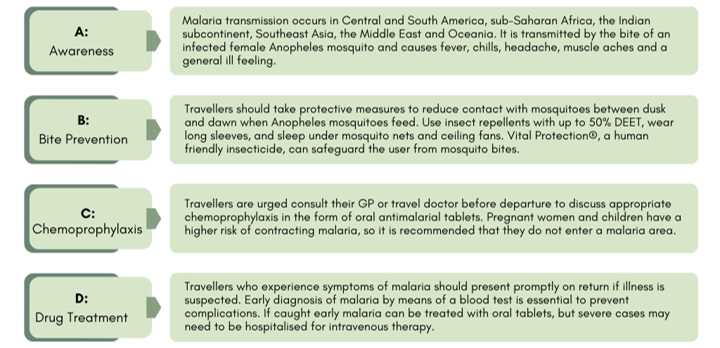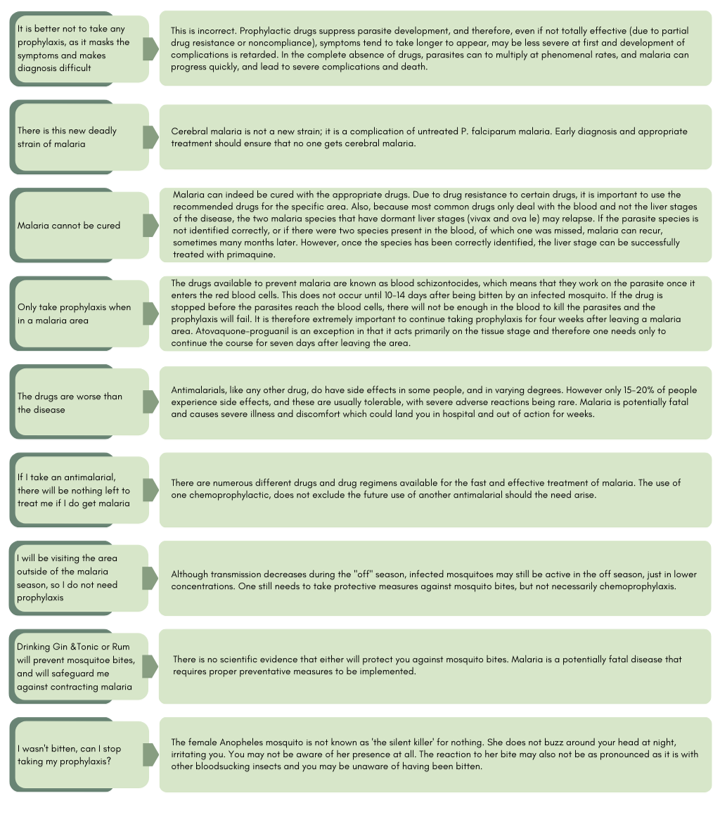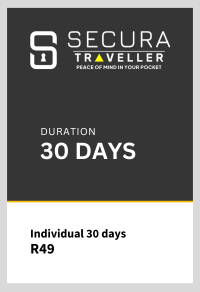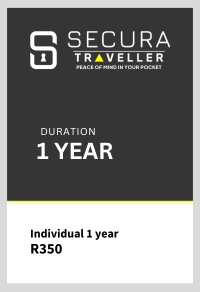Discover our comprehensive guide for smooth and safe travel experiences in South Africa.
Get valuable tips covering a broad range of topics from visa requirements to safety practices, including unique and sometimes quirky South African factors like load shedding and car guards, to take into consideration.
Every journey is a mosaic of exciting experiences and challenges, and South Africa is no exception. Safety concerns in South Africa are not unique; they're pretty much the same as you'd find in any other part of the world. From New York to Tokyo, every destination has its dos and don'ts.
This guide will help you with planning your trip and having a great holiday in South Africa!
Passports
All visitors need a valid passport to enter South Africa. The passport must have at least 30 days remaining from the intended date of departure and must have two blank pages for entry stamps.
Extended Passports
Please note that:
- Machine-readable passports that have been extended are not accepted in South Africa
- Minor’s passports that have been extended could cause entry issues. It is advised that if a minor’s passport is to be used for a trip to South Africa, a new passport should be issued to be on the safe side. This South African entry regulation applies to minor passports from any country
For more details on this, please visit the Department of Home Affairs website here.
Visas
Unless the visitor comes from a visa-exempt country it is necessary to present a valid visa.
Travellers who require a visa can apply through the South African e-Visa system if their country is currently catered for in the pilot phase, otherwise, they must apply at a South African embassy or consulate in person and provide biometric data.
Currently, there are several visa-exempt countries for South Africa. Citizens of these countries can enter the country without a visa for limited periods.
To view an up-to-date list of countries catered for via e-Visa or the list of visa-exempt and visa-required countries, please visit South Africa Visa Requirements and Eligible Countries.
Travelling With Minors
Birth Certificates
There is often confusion around this issue since unabridged birth certificates were introduced as a travel requirement for minors arriving in South Africa in 2015. This document was initially required to help prevent child trafficking. However, on Friday, November 8th, 2019, South African government officials announced that birth certificates and consent letters are no longer required.
Current requirements:
- Foreign visa-required minors will have their birth certificates processed during their visa application and do not need to produce the document for inspection at the airport upon arrival. A minor presenting a passport which contains the details of his or her parent or parents is not required to produce a birth certificate/equivalent document
- Foreign visa-exempt minors do not need to present their birth certificate or parental consent letters
- Supporting documents are not required where minors are in direct transit at an international airport
Accompanied MinorsMinors accompanied by both parents, or one parent, or travelling with a person who is not the biological parent, requires:
- A valid passport
- A valid visa, if from a visa-required country
Unaccompanied MinorsUnaccompanied Minors Requires:
- Copy of the passport(s)/identity document(s) of the parent(s) / legal guardian(s)
- Contact details of the parent(s)/ legal guardian(s)
- A valid passport
- A valid visa, if from a visa-required country
- Copy of birth certificate / equivalent document
- Parental consent letters by the parent(s) cited on the birth certificate of the minor. Where parent(s) cited on the birth certificate/equivalent document are unable to consent to the travel by a child due to recent death, persons related to the minor(s) may apply for a special dispensation in lieu of parental consent by directing a request and full motivation, together with all supporting documents, to the Office of the Director-General of Home Affairs, at the following e-mail address: consent@dha.gov.za
- Note: This dispensation does not apply where a parent is either unwilling to consent or unable to be located due to separation or divorce Where a parent refuses to give consent, a court order in terms of section 18(5) of the Children’s Act, 2005 (Act No. 38 of 2005), may be presented in lieu of parental consent
School Tours- In the case of school tours, the parental consent letter may be replaced with a letter from the school principal confirming that all consent letters are held by the school
- Upon producing this letter, immigration officers at ports of entry and South African missions abroad would not require any additional documents from individual scholars such as parental consent, birth certificates, death certificates, court orders or copies of the passports or identity documents of the parents and of the person receiving the minor in SA
- This special dispensation applies to all schools registered with the Department of Basic Education in South Africa and its equivalent abroad in respect of South African and visa-required minors
- Download the suggested format for this letter here
SARS Traveller Declaration
SARS introduced and piloted a new online Traveller Declaration system and is now ready to start rolling out to more airports and border points across South Africa. You can download a quick and useful step-by-step infographic here.
They also have a very helpful website which provides details on:
Health Considerations
While there are no compulsory vaccinations for most visitors entering South Africa (note that a yellow fever vaccination certificate is required if arriving from some endemic regions), it is recommended that you be covered against Tetanus and Diphtheria, Hepatitis A and Typhoid. If you plan to travel to more rural areas or stay for an extended period, you may wish to consider vaccinations for Rabies and Hepatitis B.
Vaccination Certificates
Travellers, including minors, coming from countries where yellow fever is prevalent need to present a certificate showing they have been vaccinated.
No COVID vaccination documents are required for South Africa.
Access to Healthcare Services
South Africa operates a two-tier healthcare system. The public healthcare system serves the majority of the population whilst the country also boasts a robust private healthcare sector, featuring high-quality facilities staffed by highly trained healthcare professionals.
It is advisable for all visitors to South Africa to have comprehensive travel insurance that includes coverage for healthcare expenses. This provides financial protection in the event of medical emergencies or unexpected healthcare requirements. With the right insurance, you can seek care in either the public or private healthcare systems as needed.
Malaria
South Africa is mostly malaria-free, but some regions do require precautions. Consult your healthcare provider for appropriate vaccines and medications before your trip.
This handy guide provides some detail on what the incidence of malaria is in South Africa and how to safeguard yourself.
Malaria Incidence
From 2010 to 2018, South Africa has experienced varying degrees of success in reducing the malaria burden.
South Africa has made significant progress in controlling malaria, reducing malaria incidence from 11.1 to 2.1 total cases per 1,000 population at risk.
In 2010/2011, the incidence rate for local and unclassified cases only (excluding imported) was 0.87 cases per 1,000 population at risk.
Overall, malaria cases reduced from approximately 14,000 in 2014 to 5,800 in 2016 and increased to 30,000 during an epidemic in 2017 in Limpopo.
The country has achieved high coverage against set targets with effective malaria control interventions in the areas of case management, vector control, surveillance, epidemic preparedness and response (EPR) and health promotion.
Areas of Risk
In South Africa, malaria is mainly transmitted along the border areas.
Some parts of South Africa's nine provinces (Limpopo, Mpumalanga and KwaZulu-Natal) include malaria areas. Malaria transmission in South Africa is seasonal, with malaria cases rising in October, peaking in January and February, and waning towards May, according to the Department of Health.
In Limpopo Province, Vhembe and Mopani districts experience the highest burden of disease, while the remaining three districts (Waterberg, Sekhukhune and Capricorn) experience very low local transmission.
In Mpumalanga Province, transmission is highest in the Bushbuckridge and Nkomazi municipalities of Ehlanzeni district, Mpumalanga's only endemic district.
As compared to the other endemic provinces, KwaZulu Natal districts (Zululand, Umkhanyakude and King Cetshwayo) have reported the lowest burden of malaria cases for the years 2013-2018.
Gauteng Province reported the highest number of imported cases for this period.
Prevention and Cure - A Simple Mnemonic

Common Myths

Sources: Department of Health: Republic of South Africa, The South African National Travel Health Network, Department of Health: Republic of South Africa: Malaria Elimination Strategic Plan for South Africa 2019-2023, The South African National Travel Health Network (SaNTHNeT)
Ebola
There are no cases, or suspected cases of Ebola in South Africa. The most recent outbreak of Ebola was in the Democratic Republic of Congo. Geographically this is not near South Africa and there is a low risk that Ebola may be exported here.
South Africa has a great deal of experience in diagnosing and managing viral haemorrhagic fevers and has the only BSL-4 high-security laboratory on the continent.
What is Ebola?
Ebola virus is a severe acute viral disease often mistaken as malaria, typhoid fever, cholera, leptospirosis, plague, rickettsiosis, relapsing fever, meningitis, hepatitis, and other haemorrhagic fevers.
How is Ebola Spread?
The Ebola virus is not waterborne or airborne.
The virus is transmitted to people from wild animals through close contact with the blood, secretions, organs or other bodily fluids of infected animals such as fruit bats, chimpanzees, gorillas, monkeys, forest antelope or porcupines found ill or dead or in the rainforest.
Ebola then spreads through human-to-human transmission via direct contact (through broken skin or mucous membranes) with:
Blood or body fluids of a person who is sick with or has died from Ebola Objects that have been contaminated with body fluids (like blood, faeces, vomit) from a person sick with Ebola or the body of a person who died from Ebola
People remain infectious as long as their blood contains the virus.
What are the Symptoms?
Symptoms of EVD can be sudden and include:
Fever / Fatigue/ Muscle pain / Headache / Sore throat
This is followed by:
Vomiting / Diarrhoea / Rash / Symptoms of impaired kidney and liver function In some cases, both internal and external bleeding (for example, oozing from the gums, or blood in the stools). Laboratory findings include low white blood cell and platelet counts and elevated liver enzymes.
The incubation period is from 2 to 21 days. A person infected with Ebola cannot spread the disease until they develop symptoms.
Who is at Risk?
The risk of Ebola infection for most travellers to DRC is low. Only those going to the outbreak area or who otherwise have contact with a person with Ebola are at risk.
Travellers could become infected if they come into contact with blood or body fluids from an infected person. Family and friends caring for people with Ebola and healthcare workers who do not use correct infection control precautions are at higher risk.
Where can you find more information about Ebola?
- World Health Organization
- National Institute for Communicable Diseases
- Centers for Disease Control and Prevention.
Sources: WHO, NICO, CDC
Load Shedding
The famous South African load shedding! It's a scheduled power outage to manage electricity supply. Not to worry; it's usually planned and announced in advance. Just make sure to charge all your devices beforehand and consider carrying a portable charger. Loadshedding is often a great time to sit back and enjoy a good book or have an authentic candlelit dinner. Romantic, isn't it?
Here’s an all-you-need-to-know guide about load shedding for travellers:
What is load shedding?
As South Africa’s primary electricity supplier, Eskom’s mandate is to ensure the security of supply to service. At all times there must be sufficient supply to meet demand.
Eskom faces the challenge of a constrained power system that will affect South Africa until substantial new power capacity is available. In the meantime, to meet demand, older power stations and infrastructure are being used to full capacity.
Load shedding, or load reduction, is done countrywide as a controlled option to respond to unplanned events to protect the electricity power system from a total blackout. This is done through various stages of load shedding.
While we generally use the word blackout loosely to mean “no lights” in our local area, a country-wide blackout has much more serious consequences, which can occur when there is too much demand and too little supply, bringing the power system into an imbalance – tripping the power system in its entirety.
Why is South Africa experiencing load shedding?
Load shedding is related to inadequate national energy supply to meet demand. This is mainly due to a large amount of unplanned maintenance required at Eskom’s aging coal-fired power stations. In addition, the new energy generation units at Medupi and Kusile have faced challenges in bringing the units online.
What are the stages of load shedding?
Load-shedding stages depend on the extent of the shortage of generation capacity to meet the country’s electricity demand, with stage 1 being the least serious, and stage 8 being the most serious. Outages generally last for about 2,5 hours. Due to technical issues, there can be minor changes in the load-shedding area boundaries from time to time.
- Stage 1 allows for up to 1,000 MW of the national load to be shed. This is the “cosiest stage”, for lack of a better world. Outages will be implemented three times over a four-day period for two hours at a time, or three times over an eight-day period for four hours at a time
- Stage 2 allows for up to 2,000 MW of the national load to be shed and doubles the frequency of stage 1. Outages will be implemented six times over a four-day period for two hours at a time, or six times over an eight-day period for four hours at a time
- Stage 3 allows for up to 3,000 MW of the national load to be shed. This stage increases the frequency of stage 2 by 50%, so outages will be implemented nine times over a four-day period for two hours at a time, or nine times over an eight day period for four hours at a time
- Stage 4 allows for up to 4,000 MW of the national load to be shed. Outages will be implemented 12 times over a four-day period for two hours at a time, or 12 times over an eight day period for four hours at a time
- Stage 6 is the highest we’ve ever been shed, the dark and dreary month of December 2019. At stages 6 and 7, Eskom sheds 6 000MW and 7 000MW respectively, which means power cuts will be scheduled over a four-day period for four hours at a time
- Stage 8 doubles the frequency of stage 4, meaning Eskom will shed 8 000MW and residents will be in the dark up to six times a day, or 12 hours depending on the schedule
What will be affected by load shedding?
The following may not be available when the electricity supply at your accommodation is switched off:
- Electric geysers and electrically heated water supplies
- Gas hot water systems that rely on mains power to control the system or ignite the gas
- Electric appliances such as stoves, kettles, toasters, microwave ovens, refrigerators, dishwashers, washing machines and tumble dryers
- Electric lights
- TV and hi-fi equipment
- WiFi
- Cordless phones, fax machines and answering machines that run on electricity
- Electrically motorised security gates and garage doors (those with battery backup should have sufficient capacity to operate a few times during load shedding)
- Pool pumps
- Personal computers
- Electric air conditioning
- Mains-powered electric clocks and alarm clocks (without backup batteries)
- Household electric pumps for water features, irrigation or plumbing systems
- Automatic electronic control systems and time clocks
What is usually not affected by load shedding?
Generally speaking, the following will continue to operate despite load shedding:
- Security systems that have battery backup (some may trigger an alarm because of the power interruption)
- Other electronic systems and devices with battery backup or UPS support
- Telephones that do not rely on mains electricity
- Cell phones
- Laptops and tablets
Where can I find out if my area is being load shed?
Your accommodation establishment should have the necessary information on hand to advise when load shedding is scheduled to take place.
If the municipality you are staying in is an Eskom customer, you can also look up your schedule on the Eskom website by typing in the area. Information is also available from the Eskom Contact Centre on 086 003 7566.
If you have a smartphone with data, you can also download such apps as EskomSePush and MyEskom (available on both the Apple iStore and Google Play Store). These will give you continuous updates on current and forecast load shedding times in any areas you select, as well as what stage load shedding is underway.
What is the impact of load shedding for travellers?
While load shedding can be a temporary inconvenience for travellers, many accommodation providers and tourism establishments have equipped themselves with diesel-powered generators to ensure minimal inconvenience for their guests and visitors. This applies to most shopping centres and restaurants too.
If you happen to be travelling to South Africa over a load shedding period, ensure you’ve looked at the Eskom website or apps mentions above and plan your day based on when there’s no scheduled load shedding and to time your visits to tourist attractions that do not have back-up power accordingly.
Should you be staying at an accommodation provider or visiting a tourism establishment with power, know that the load shedding is a temporary situation and try to prepare as much as possible, e.g., requesting a thermos of hot water before the load shedding begins so you’re not deprived of your coffee.
And of course, you’re in South Africa! There’s plenty to do that does not require electricity. Go to the beach, take a road trip or catch a glimpse of the Big 5 – if nothing else going off the grid will restore your soul.
Load Shedding Tips for Travellers
Load shedding may be inconvenient, but you could minimise this by being prepared and staying positive and patient. With a bit of luck, you will only be minimally affected, or not at all.
- Know when the power cuts are due to happen
- Your accommodation establishment will have this etched into their brains. They will probably inform you each day when to expect load shedding and also know the best coffee spot and restaurants with power in the near vicinity.
- Remember, power cut times differ between regions and even within a city. If you’re re on the move, be prepared and look ahead and where you’re going, the likely time you’re planning to be there, whether there is load shedding and whether these establishments have back-up power if there is.
- Plan accordingly
- Plan your dining times in areas that are not being load shed or outside of load shedding times. Many restaurants have a back-up plan, so check with your accommodation provider or the restaurant.
- Try to avoid non-essential car journeys in cities during load shedding – see traffic lights below.
- However, counter to this, driving in the rural areas during load shedding is a good way to see the country, and not feel the need for electricity. An added bonus is you can charge your devices at the same time.
- Make sure that your phone and camera are fully charged prior to the power cuts.
- The hotel or lodge will have provided extra emergency lighting in your rooms, but it will be darker than normal so we also recommend bringing a head torch so that you can have both hands free. Why not keep your phone (with its ‘torch’ app) close to your bed?
- Exercise patience
- The reality is that nothing works quite as it should when there is a power cut. Therefore, your room may not be ready at the usual check-in time because there was a power cut when they were due to clean the room.
- The good news is that you are on holiday. The hotel swimming pool doesn’t need power, nor does a walk on the beach or a scenic drive over a mountain pass.
- Elevators
- Please note that most generators do NOT power lifts or elevators in hotels so make a habit of using the stairs.
- Stay charged
- Whenever possible, ensure that your devices are charged fully. Plug them in overnight, charge your powerbanks when you can and ensure you have a car charger for those long road trips.
- Petrol stations
- Speaking of long road trips, ensure your vehicle always has fuel in the tank because many petrol stations cannot pump fuel during power outages.
- Card transactions and withdrawing cash
- Similarly, some card pay points may be slow or non-operation during load shedding. ATMs cannot operate without electricity so ensure you carry enough cash on you, but be vigilant about carrying too much and displaying it openly.
- Access, security and safety
- Ensure that the accommodation you are staying in has backup batteries in its electrically operated gates, garage doors and security systems are in good condition to last through periods of load shedding.
- Ensure that the accommodation you are staying in has temporary lighting readily available, e.g. battery-powered torches, gas lamps and candles. Make sure these items are located in places where they will be easy to find in the dark.
- Hot or cold
- Boil water and keep it in thermos flasks for hot drinks for times when the power is scheduled to be switched off.
- Use an insulating cover on teapots and other pots and pans to keep drinks hot, and meals warm.
- Prepare meals beforehand in readiness for periods when there will be power cuts.
- Fill plastic containers with water (still leaving some space inside each container for expansion during freezing) in a deep freeze or the freezer compartment of your fridge. This frozen bottled water will help keep food cold during a power outage.
Is it Safe to Travel to South Africa?
When it comes to tourism safety in South Africa, it's important to know that there are practical steps you can take to mitigate the impact of crime and ensure a secure travel experience. Locals will often advise you to be cautious and remain constantly aware of your surroundings, as this can go a long way in ensuring your safety.
By following this advice, you'll have the opportunity to create lifelong memories while exploring South Africa's breathtaking landscapes, encountering its diverse wildlife, and immersing yourself in its fascinating history. Along the way, you'll have the chance to meet captivating people from a variety of cultures, enriching your travel experience.
It's worth noting that as a visitor, you can also make a positive contribution to the prevention of crime by adhering to some key suggestions. While South Africa is known for being a popular destination, attracting numerous repeat visitors, it's essential to keep in mind that millions of tourists visit the country without incident each year.
Like many cosmopolitan destinations, South Africa faces its share of crime. However, it's important to understand that this crime is not primarily targeted at tourists and does not typically occur in areas frequented by visitors. While exceptions exist, ensuring tourism safety in South Africa remains a top priority for the industry.
Media reports often highlight South Africa's reputation for crime and corruption. However, it's crucial not to base perceptions solely on these reports as they may not always provide a balanced perspective and can sometimes exaggerate the situation. Instead, consulting your travel agent or tour operator will provide a more accurate picture of what is happening on the ground.
Just like any other country, South Africa has areas that are safer than others. In most cases, common sense prevails, and taking the same precautions you would when travelling in any foreign country or city in the world is advisable. Furthermore, planning a properly structured itinerary through a reputable tour operator with a strong tourism safety protocol will help mitigate any potential risks. In the unlikely event of an incident, this ensures that you will receive swift assistance from experts and local authorities.
Is South Africa Safe for Solo Travellers?
It is generally safe to travel alone in South Africa. However, like any other destination, it is important to take necessary precautions and be aware of your surroundings. It is recommended to stay in well-populated areas, avoid walking alone at night, and take taxis or rideshares instead.
Careful planning and knowledge of how to get around are key to making the most out of your visit while staying safe. It is also advisable to inform someone from your accommodation of your plans for added peace of mind. Remember, prioritizing your safety is essential for an enjoyable and worry-free trip to South Africa.
Is South Africa LGBTQA++ Friendly?
South Africa is often rated as one of the friendliest LGBTAQ++ destinations and is known for having one of the most progressive constitutions in the world, which includes protections for LGBTQA++ individuals.
Here is what makes South Africa one of the most gay-friendly destinations:
- The majority of the South African public is accepting of homosexuality
- Sexual activity for same-sex couples: Male legal since 1998. Females were always legal.
- Civil union rights: Limited recognition of unregistered partnerships since 1998; same-sex marriage since 2006.
- Marriage rights: Legal since 2006.
- Adoption rights: Legal since 2002.
- Military service rights: Legal since 1998.
- Anti-discrimination laws: Our Constitution bans all anti-gay discrimination.
- Gender identity laws: Anti-discrimination laws are interpreted to include gender identity; legal gender may be changed after surgical or medical treatment.
That being said, there are still incidents of discrimination against the community, particularly in rural areas. Please exercise caution and research your visit well or get guidance from a reputable tour operator or travel agent.
Is it Safe to Visit a Township?
If you're planning a holiday in South Africa, you may have come across warnings about crime in the townships or even advice that you should avoid these areas completely. While it's true that crime rates are often higher in these areas, tours of the townships occur every day without incident, offering a glimpse into how many South Africans live and the complexity of South African society.
Visiting one of the townships is a great way to get an authentic glimpse of everyday life and culture in these vibrant communities. Engaging with local people and seeing how they live, work, and play is a rewarding cultural experience for many tourists. Township tours also provide an opportunity to learn about the history and evolution of these areas, from their humble beginnings as informal settlements to their current status as thriving urban centres.
However, it's important to ensure that you go into the "right" places within these townships to ensure that your visit goes smoothly. Opting for a guided tour with a reputable operator who has knowledge of the area and a planned itinerary is the best way to do this. These tours are carefully structured by people who know these areas best and are often led by guides who have grown up within the township, experienced living there firsthand, and have close personal ties to the area and its residents.
Whether you're in Johannesburg and want to explore the vibrant township of Soweto or in Cape Town and wish to trek your way through Langa - the Mother City's oldest township - you will have no trouble finding a guide to share the colourful stories, sights, and sounds of these areas. With improved safety and carefully structured tours, you can count on an authentic day of sights and activities, making for a more meaningful excursion.
While you definitely shouldn't be fearful when embarking on a guided township tour in South Africa, it's always important to follow your guide's directions, be aware of your surroundings, and keep the following safety tips in mind:
- Do not carry large sums of money on you
- Do not wear flashy jewellery
- Keep personal belongings such as handbags and backpacks secure at all times
- Always be aware of your surroundings
- Stick close to your tour group
Is South Africa politically stable?
South Africa's government and politics are stable. Having gone through a traumatic past of apartheid, civil and political unrest, and the incredible changes that created the current democratic system of governance under Nelson Mandela, South Africans are incredibly proud of their Rainbow Nation and democratic freedom.
Our hard-fought-for constitution allows South Africans to stand up for their rights when they feel aggrieved. This occasionally surfaces as protests - the majority of which are peaceful demonstrations but can become disorderly. In either case, protests and surrounding areas are best avoided by tourists.
Travel Advisories
In our commitment to ensuring a seamless and secure travel experience in South Africa, SATSA has compiled a series of trade advisories designed to address current concerns and enhance the safety and comfort of your journey.
Advisories will be updated and maintained here, so please do visit regularly.
- Election Season Insight: With South Africa poised for its 2024 general elections, our advisory offers a comprehensive guide on what travellers can expect during this significant period. Find out more about the measures in place to ensure a peaceful and orderly process. Read the Election Advisory.
- Water Supply Update for Gauteng: Amid concerns over potential water supply issues in Gauteng, we provide reassurance and updates on the situation, ensuring your stay in Johannesburg remains unaffected. Read the Water Supply Advisory.
- Navigating ATM and Card Scams: Recent reports of ATM and card scams targeting tourists have prompted us to issue an advisory on staying vigilant and secure. Learn about the modus operandi of these scams and how to protect yourself. Read the ATM and Card Scams Advisory.
- Self-Drive Safely in South Africa: For those embarking on a self-drive adventure, our guide covers essential safety tips, from navigating local roads to dealing with breakdowns and ensuring vehicle security. Read the Self-Drive FAQ.
Definitions
Birth Certificate
- An extract from the Birth Register containing the particulars of a minor and his/her parent(s). Birth certificates containing the details of a minor as well as his/her parent/s are accepted for the purposes of these requirements regardless of the country of issue
- In the case of countries that do not issue birth certificates, an ’equivalent document’ containing the particulars of the minor and his/her parent(s), issued by the competent authority of that country, or an embassy of that country may be produced
- The suggested format for Equivalent Document is available here
Minor
- South African law regards any person younger than 18 years as a child.
Equivalent Document
- In the case of countries that endorse the particulars of parents in minors’ passports, or other official identification documents, these documents shall be acceptable for the purpose of establishing the identity of the parents of the travelling minor
Letter of Special Circumstances
- Letter issued by the Director-General of Home Affairs in lieu of parental consent in the event of a recent death or mental or physical disability
Parent
- Unless the context indicates otherwise, the word “parent” includes adoptive parents and legal guardians.
Parental Consent Letter
- Must accompany a birth certificate when any parent is not travelling with his or her child
- Must not be older than 6 months when presented
- Suggested format of the Parental Consent letter is available here
























